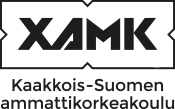Supply chain management and smart logistics (5 cr)
Code: MB00ED84-3003
General information
Enrollment
06.04.2022 - 22.04.2022
Timing
01.09.2022 - 31.12.2022
Number of ECTS credits allocated
5 op
Virtual portion
3 op
RDI portion
3 op
Mode of delivery
40 % Contact teaching, 60 % Distance learning
Unit
Liiketalouden koulutusyksikkö
Campus
Kouvola Campus
Teaching languages
- English
Seats
20 - 40
Degree programmes
- Master's Degree Programme in International Business Management
Teachers
- Slaveya Hämäläinen
- Jagat Kunwar
Teacher in charge
Jagat Kunwar
Groups
-
MBKV22KYInternational business management, master studies
Objective
You know what the value in supply chain management (SCM) is.
You learn how to transform the linear models to the circular ones.
You learn how to develop a firm’s SCM strategy.
You are able to identify the major process models and practices in SCM development such as Lean, Agile, TQM, and Lead-time compression.
You are able to identify and use the major measurement tools and KPIs for analyzing the efficiency of SCM performance.
You learn how to confront digitalization with the help of the modern supply chain management.
Content
How to deliver customer value in SCM?
How to create a sustainable and responsible SC?
How to develop the SCM strategy of a firm?
What are the major process models and practices in SCM development such as Lean, Agile, TQM, and strategic lead-time management?
What are the major measurement tools and KPIs for analyzing the efficiency of SCM performance?
How to apply digitalization in managing SC?
Materials
(1) Lecture notes and cases from the class
(2) Selected chapters from the following source materials ( only most important are mentioned)
(a) Christopher, M., 2011. Logistics and Supply Chain Management. Edinburgh Gate: Pearson Education Limited.
(b) Weele, A. J. V., 2014. Purchasing and Supply Chain Management. Hampshire: Cengage Learning.
(c) Monczka, R. M., Handfield, R. B., Giunipero, L. C. & Patterson, J. L., 2009. Purchasing and Supply Chain Management. 4th Edition. Mason, USA: South-Western Cengage Learning.
Teaching methods
When the course is over, students should be able to:
(1) explain the basic concepts of supply chain management
(2) have basic understanding of supplier selection and supplier network configuration process
(3) understand important operational issues in the supply chain such as logistics, TQM, inventory management and demand management process
(4) understand integration issues in the supply chain
(5) have basic understanding about why sustainability thinking is crucial in the supply chain
Employer connections
During the course, you will,
(1) solve real life business cases using supply chain management thinking
(2) develop solutions to SCM related problems faced by organization of your choice.
Exam schedules
The maximum number of points obtainable from the course is 100, which is broken down as follows:
- Final exam 60 Points
- Tasks in groups 40 Points
- Attendance (bonus) 10 points
Student workload
The maximum number of points obtainable from the course is 100, which is broken down as follows:
- Final exam 60 Points
- Tasks in groups 40 Points
- Attendance (bonus) 10 points
Further information
The course consists of F2F meetings. Only some sessions can be implemented virtually.
Evaluation scale
1-5
Assessment methods and criteria
The maximum number of points obtainable from the course is 100, which is broken down as follows:
- Final exam 60 Points
- Tasks in groups 40 Points
- Attendance (bonus) 10 points
